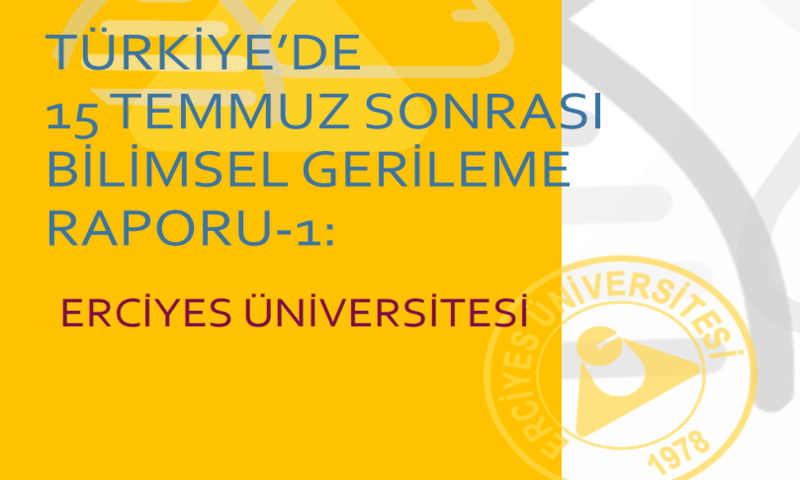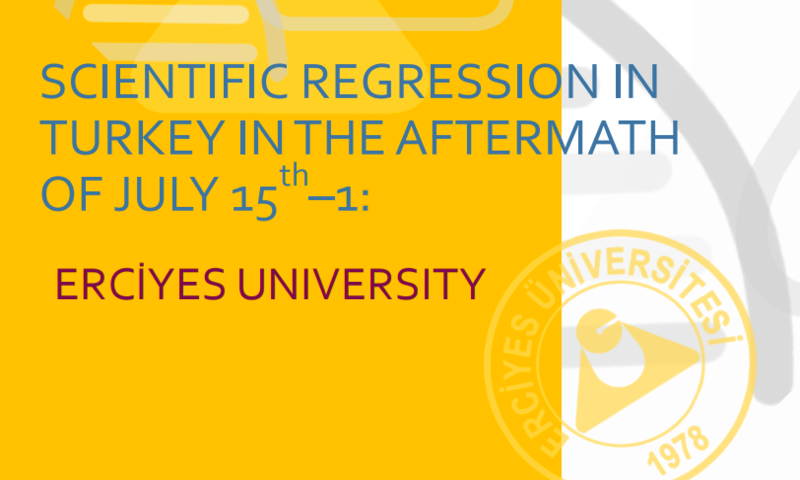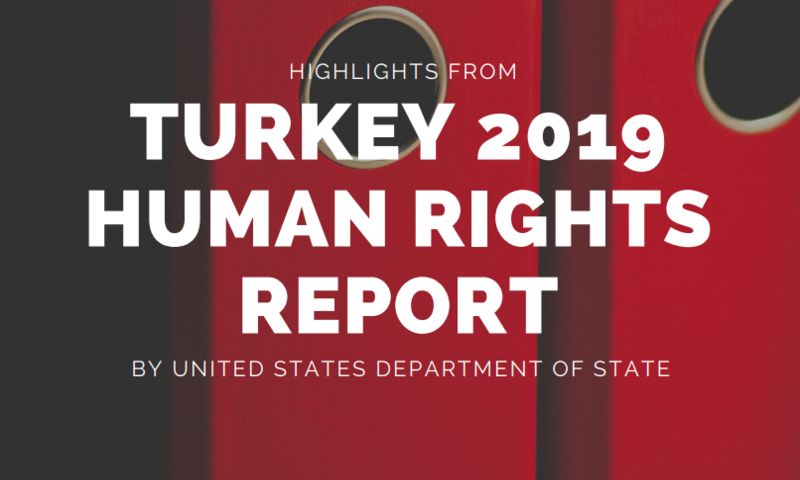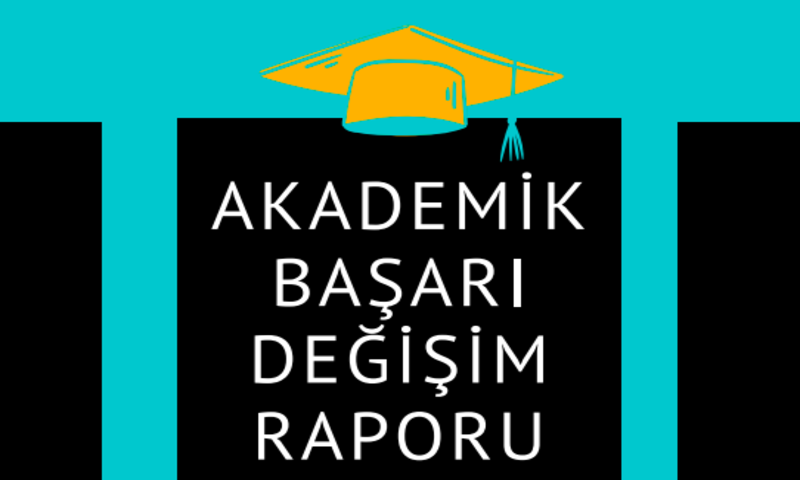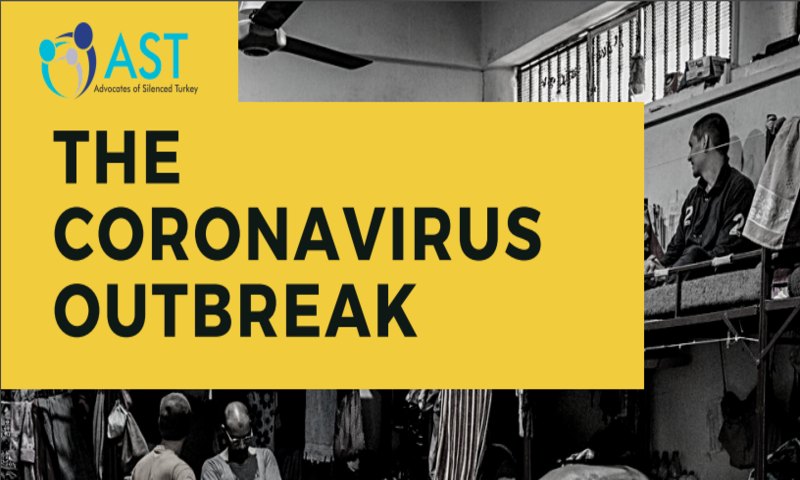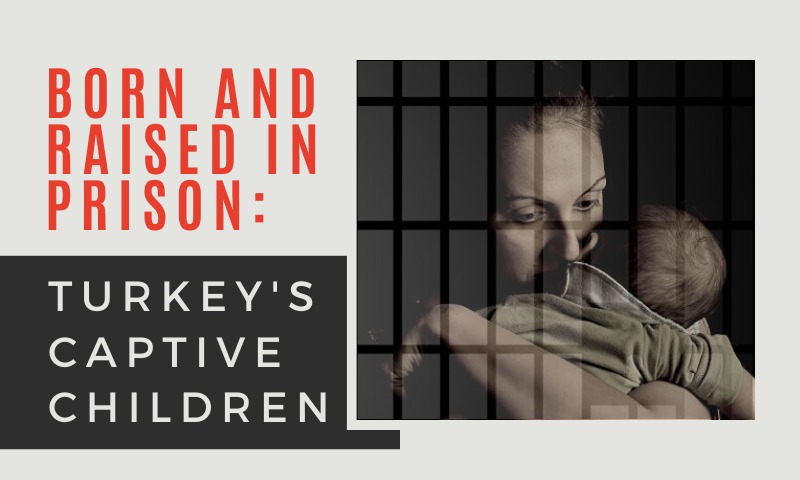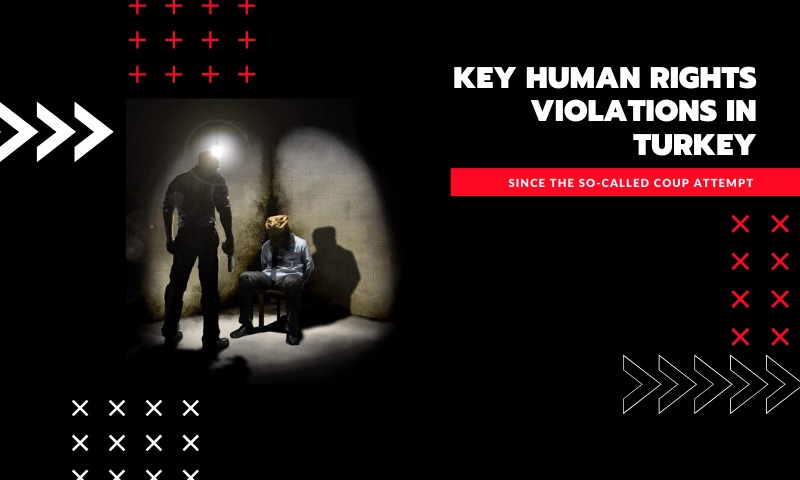15 Temmuz sözde darbe girişimi asıl darbeyi eğitim alanına vurmuştur. Eğitimin en önemli saç ayağı üniversiteler kapatılmış, binlerce yetişmiş akademisyen herhangi bir sebep gösterilmeden bir gecede işlerinden atılmış, hatta hapishanelere gönderilmiştir. Bu çalışma, 15 Temmuz sonrası yapılan akademik darbenin, Türkiye’nin köklü devlet üniversitelerinden birisi olan ERCİYES ÜNİVERSİTESİ’ndeki olumsuz etkilerini analiz etmektedir.
SCIENTIFIC REGRESSION IN TURKEY IN THE AFTERMATH OF JULY 15th –1: ERCİYES UNIVERSITY
The alleged coup attempt of the July 15th struck the real impact in the field of education. The most important pillars of education, universities were closed, thousands of educated academics were discharged overnight without any reason, and even sent to prisons. This study analyzes the negative effects of the academic slaughter that took place in one of Turkey’s most reputable universities after the July 15th, The Erciyes University.
Erciyes University was founded in 1978 under the name of Kayseri University. It was renamed Erciyes University in 1982. Today, Erciyes University serves with 19 faculties, 1 college, 2 vocational schools, 7 institutes, 6 departments, 44 research centers, and an advanced practice hospital with 1350 beds. In addition to Gevher Nesibe Hospital, Cardiovascular Diseases Hospital, Organ Transplantation and Dialysis Hospital, Oncology Hospital, Children’s Hospital and Bone Marrow Transplant and Stem Cell Treatment Center are the most important health institutions of the region. Approximately 65,000 students receive education [1]. In addition, Melikşah University, which was closed unlawfully on 23 July 2016, was transferred to Erciyes University and the campus of MELİKŞAH University was named “Erciyes University, The July 15th Campus” [2].
The toll numbers reached 6070 just for public university academics in Turkey after the July 15th [3]. 2,808 academics in 15 terminated foundation universities were not included in this number. 144 people, namely 6% of the total academics, were discharged from the 2398 academics at ERCIYES University after the so-called coup attempt. The distribution of the discharged academics regarding their ranks has given in Table 1.
| ACADEMIC TITLE | #of DISCHARGED |
| Professor | 27 |
| Assoc. Prof. | 31 |
| Assist. Prof. | 35 |
| Instructor | 10 |
| Research Fellow | 40 |
| Expert | 1 |
| TOTAL | 144 |
Table 1 Academic ranking of the discharged professors at Erciyes University
Objective measurement of scientific contributions of academics is widely used to understand the quality of universities and countries in the world. Google Scholar [4] is an important open source where researchers can track their publications, citation numbers, and index values. In this analysis, the Google Scholar criterion was taken to examine the scientific contributions of the discarded academics. The average number of citations of the discarded academics was calculated as 891.83, which is quite impressive. For example, Professor SALİH ÖZGÖÇMEN has 10261; Assistant Professor KAZIM ZİYA GÜMÜŞ has 10159 citations.
In addition to that, an important demonstration of broad success to be underlined is that 24 academics have more than 500 citations, as well as 52 academics, have more than 100 citations. In addition to the number of citations, the index values of the dismissed academics were also examined. H-index is more reliable in measuring qualified scientific contributions since it measures the number of publications and citation efficiency together. Academic Data Management publishes the h-index numbers within the system. But instead of publishing all the academics, they list the first 20 with the highest citations in their field [5]. According to the current figures of the Academic Data Management System, the average h-index of 20 academicians with the highest h-index number of ERCİYES University is calculated as 14. The h-index average of the dismissed academics was found to be 13.10, which clearly shows their contribution to ERCIYES University.
Despite the fact that only 6% of the academics at ERCIYES University were discharged after the alleged coup of the July 15th, and all the facilities and infrastructure of MELIKSAH University were seized, a 17% dramatic decline in the ranking of the academic achievement in the world could not be prevented [10]. The above information shows clearly, how the alleged coup attempt impacted the scientific research in ERCIYES University and Turkey.
REFERENCES
1.https://www.erciyes.edu.tr/kategori/ERU -HAKKINDA/Tarihce/2/58
2.https://www.erciyes.edu.tr/Duyuru-Haber/ Kapatilan-Meliksah-UniversitesiYerleskesine-%E2%80%9CErciyes-Universitesi -15-/5579
3.http://bianet.org/bianet/ifadeozgurlugu/198990-akademide-ihraclar-6-bin81-e-yukseldi
4.https://scholar.google.com/
5.https://avesis.erciyes.edu.tr/raporlar/ atiflar/h-indeksi-en-yuksek-olanakademisyenler
6.https://www.haberler.com/40-yil-erzurum -da-hizmet-verdi-simdi-kayseri-nin-haberi/
7.http://drkuk.net/dr-kuk-hakkinda/
8.https://twitter.com/docmustafatutak/ status/1276919068621225984/photo/1
9.https://www.veteknoloji.net/haber/ elektromanyetik-dalgalara-etkili-kumas51455.html
Widget not in any sidebars
Donate Now
HIGHLIGHTS FROM TURKEY 2019 HUMAN RIGHTS REPORT BY UNITED STATES DEPARTMENT OF STATE
The United States Department of State released Turkey 2019 Human Rights Report which has critical points regarding human rights violations in Turkey.
For Example;
- As many as 100 persons, including former members of the Ministry of Foreign Affairs, dismissed under the 2016-18 state of emergency decrees due to suspected ties to the Gulen movement, were mistreated or tortured while in police custody.
- 780 Children including children younger than six years of age were being held in prison with their mothers.
- The government did not release data on its investigations into alleged torture. Some doctors would not sign their names to medical reports alleging torture due to fear of reprisal. As a result, victims were often unable to get the medical documentation that would help prove their claims.
- On the three-year anniversary of the July 15 coup attempt, the government announced that 540,000 individuals had been detained since the coup attempt on grounds of alleged affiliation or connection with the Gulen movement.
- There were 41,000 individuals in prison for terror-related crimes. Of these, 28,000 were Gulen movement-related.
- The government exerts power in the administration of 90 percent of the most-watched television stations and most-read national daily newspapers.
Widget not in any sidebars
Donate Now
SRW TÜRKİYE’DE 2016-2020 YILLARI ARASI AKADEMİK BAŞARI DEĞİŞİM RAPORU
Bu çalışma, 2016 darbe teşebbüsü ile başlayan olağanüstü hâl yönetimi ve KHK’ların Türkiye’deki üniversitelerin başarı değişimini analiz etmeyi amaçlamaktadır.
Türkiye’de 15 Temmuz 2016’da meydana gelen sözde darbe teşebbüsünden sonra çıkan 11 KHK ile toplamda 6,070 akademisyenin 122 devlet kurumundaki işlerine son verildi [1]. Ayrıca 15 vakıf üniversitesinin de tamamen kapatılması ile 2,808 akademisyen daha bu sayıya eklendi [2] ve resmi rakamlara göre; toplamda 8,878 akademisyenin görevlerine son verildi. Türkiye’deki akademisyen sayısı 15 Temmuz öncesi 64,488 olarak görülmektedir ve eğitim sisteminde bir akademisyenin yetişmesi için lisans ve lisansüstü çalışmalar göz önüne alındığında ortalama 12 yıl gibi bir zaman ve emek harcanması gerekmektedir. OECD raporlarına göre ise bir insanın ilköğretimden başlayarak akademisyen olana kadarki harcama miktarı ise ortalama olarak 124,448 Amerikan doları seviyesindedir [3].
| Universite | Atilan Toplam Akademisyen Sayisi | Toplam Akademisyen Sayisi | Atilan Oran(%) |
| Abant Izzet Baysal | 78 | 1333 | 5.9 |
| Adiyaman | 67 | 862 | 7.8 |
| Adnan Menderes | 54 | 1726 | 3.1 |
| Afyon Kocatepe | 93 | 1360 | 6.8 |
| Akdeniz | 115 | 2492 | 4.6 |
| Anadolu | 68 | 2188 | 3.1 |
| Ankara | 133 | 3732 | 3.6 |
| Atatürk | 152 | 2703 | 5.6 |
| Balikesir | 67 | 1032 | 6.5 |
| Bülent Ecevit | 71 | 1287 | 5.5 |
| Çanakkale 18 Mart | 205 | 1653 | 12.4 |
| Celal Bayar | 140 | 1651 | 8.5 |
| Cumhuriyet | 56 | 1858 | 3 |
| Dicle | 172 | 1935 | 8.9 |
| Dokuz Eylül | 46 | 3381 | 1.4 |
| Dumlupınar | 168 | 1239 | 13.6 |
| Ege | 45 | 3175 | 1.4 |
| Erciyes | 145 | 2398 | 6 |
| Erzincan | 54 | 916 | 5.9 |
| Eskişehir Osmangazi | 46 | 1542 | 3 |
| Fırat | 47 | 1741 | 2.7 |
| Gazi | 233 | 3982 | 5.9 |
| Gaziantep | 128 | 1644 | 7.8 |
| Gaziosmanpaşa | 59 | 1286 | 4.6 |
| Gebze Teknik | 19 | 154 | 12.3 |
| Hacettepe | 74 | 3720 | 2 |
| Harran | 68 | 1012 | 6.7 |
| İnönü | 58 | 1672 | 3.5 |
| İstanbul | 192 | 5445 | 3.5 |
| İstanbul Teknik | 32 | 2211 | 1.4 |
| Kafkas | 30 | 890 | 3.4 |
| Kahramanmaraş Sütçü İmam | 126 | 1305 | 9.7 |
| Karabük | 50 | 995 | 5 |
| Karadeniz Teknik | 44 | 2528 | 1.7 |
| Kırıkkkale | 74 | 1226 | 6 |
| Kocaeli | 57 | 2098 | 2.7 |
| Marmara | 102 | 3201 | 3.2 |
| Mersin | 33 | 1630 | 2 |
| Muğla Sıtkı Koçman | 38 | 1523 | 2.5 |
| Mustafa Kemal | 105 | 1060 | 9.9 |
| Niüde Ömer Halisdemir | 36 | 891 | 4 |
| Ondokuz Mayıs | 123 | 2347 | 5.2 |
| Pamukkale | 181 | 1995 | 9.1 |
| Sakarya | 97 | 2010 | 4.8 |
| Selçuk | 126 | 2732 | 4.6 |
| Süleyman Demirel | 271 | 2303 | 11.8 |
| Trakya | 29 | 1701 | 1.7 |
| Uludağ | 38 | 2474 | 1.5 |
| Yıldız Teknik | 114 | 1754 | 6.5 |
| Yüzüncü Yıl | 73 | 1705 | 4.3 |
Son olarak, sıralamadaki değişimin ihraç oranına bölünmesi ile oluşturulan kişisel başarı endeksi (atılanların akademik başarıya katkı endeksi) hesaplanmıştır. Buradaki amaç, ihraç edilen insanların üniversitelerin başarısına olan etkisini hesaplamaktır. Listenin en başında olan ve de en çok dikkat çeken Ege Üniversitesi’dir. Ege Üniversite’sinde toplam ihraç edilen akademisyen sayısı 45 ve oranı %1.4 olmasına rağmen, bu üniversitenin dünya çapındaki sıralaması 674’ten 913’e gerilemiştir ki, bu da akademik başarının %35 oranında düştüğünü göstermektedir. Ege Üniversitesi’nin söz konusu endeksi 25.33 olarak hesaplanmıştır. Benzer şekilde listenin üçüncü sırasında, İstanbul Teknik Üniversitesi’nde toplam ihraç edilen akademisyen sayısı 32 ve oran %1.4 olmasına rağmen bu üniversitenin dünya çapındaki sıralaması ise %19 civarında düşüş göstermiş, endeksi 13.76 olmuştur. Bu endeksin en yüksek olduğu üniversiteler Şekil 4’te verilmiştir.
Daha fazla bilgiye sayfanın üstünde yer alan PDF Link’ine tıklayarak ulaşabilirsiniz….
References
- Kural, B., Adal, H. (2018, July). Haber Listesi : Akademide İhraçlar 6 Bin 81’e Yükseldi.
Retrieved from: http://bianet.org/bianet/ifade-ozgurlugu/198990-akademide-ihraclar-6-bin-81-e-yukseldi - Kural, B., (2016, August). Haber Listesi : Sayılarla Kapatılan Üniversiteler.
Retrieved from: https://m.bianet.org/bianet/egitim/177442-sayilarla-kapatilan-universiteler - University Ranking by Academic Performance.(n.d.)
Retrieved from: http://tr.urapcenter.org/2019/index.php - Country Note, (2014). Turkey–Education at a Glance 2014: OECD Indicators.
Retrieved from: https://www.oecd.org/education/Turkey-EAG2014-Country-Note.pdf - Yuksek Ogretim Bilgi Yonetim Sistemi, (n.d.).
Retrieved from: https://istatistik.yok.gov.tr/ - http://www.webometrics.info/en
Widget not in any sidebars
Donate Now
GRAVE DECLINE IN ACADEMIC ACHIEVEMENT BETWEEN 2016-2020 IN TURKEY
This study aims to analyze the impacts of the state of emergency declared after the 2016 coup attempt in Turkey on the academic achievements of the universities.
After the coup attempt on July 15th of 2016 in Turkey, a total of 6,070 academics have been dismissed from 122 state institutions following 11 issued emergency decrees (KHK)[1]. 2,808 academics have been added to this list with the closure of 15 private universities [2]. In total, 8,878 academics have been dismissed from their jobs, corresponding to nearly 15 percent of the number of academics in Turkey. The academics who voluntarily left the country are not included in this number.
Considering graduate and undergraduate studies, an average of 12 years should be spent on being an academic. According to the Organization for Economic Co-operation and Development (OECD), the average amount of expenditure of a person starting from primary education until becoming an academic is approximately 124.448 USD [3]. This means Turkey’s financial loss to be roughly around 1.1 billion USD.
In this study, the impacts on the worldwide success ranking of the universities after the cruelty that occurred in public universities in Turkey are examined. The top 50 universities of Turkey are also amongst the 122 universities from where the academics were dismissed. The total number of dismissed academics from the 50 universities is 4,632. Table 1 and Figure 1 detail the number of dismissed academics on a university basis. Dumlupınar University ranks highest on that list, with its 13.6% of academics having been dismissed by emergency decrees. On average, one in every 7 scientists was dismissed. Figure 2 shows that 20 universities have the highest rate in this regard.
Observing the rate of change in academic ranking on a university basis reveals that the success rankings of these institutions decreased by an average of 18%, despite 5% dismissal rate at the top 50 universities [4]. This is an important indicator showing the contribution of the dismissed academics to the scientific achievements in Turkey. Another issue to consider is that instead of dismissed academics, new academics were recruited between 2016 and 2019, thereby increasing the total number of academics by around 7% [5]. Despite the new recruitments, academic setbacks at such a high level are very thought-provoking. The universities which had significant changes in the academic ranking are identified in Figure 3. Celal Bayar University ranks highest on that list, attracting large attention. It ranked 2,207 in the world university rankings before July 2016; however, its ranking dropped to 4,755 in December of 2019, a dramatic change by 109%. Celal Bayar University is followed by Bülent Ecevit University with a 70% drop rate. Noticeably, 42 of the 50 universities experienced a decrease in the world rankings, whereas only 8 universities’ rankings remained the same.
In conclusion, the personal success index (contribution index of the dismissed to academic success), which is formed by dividing the change in the ranking by the rate of dismissing, was calculated. The aim was to calculate the impact of dismissed academics on the success of universities. At this point, the most notable one is Ege University which is ranked highest on that list. Although the total number of dismissed academics at Ege University was 45 and its rate is 1.4%, the global ranking of this university has decreased from 674 to 913, which indicates that academic success has decreased by 35%. The index of this university was calculated at 25.33. Similarly, in the third place of the list, although the total number of dismissed academics at Istanbul Technical University was 32 and the rate was 1.4%, the world ranking of this university decreased by 19% and its index was 13,76. The universities that have the highest index are stated in Figure 4.
| University | Number of dismissed academics |
Total number of academics |
Rate of dismissed academics (%) |
| Abant Izzet Baysal | 78 | 1333 | 5.9 |
| Adiyaman | 67 | 862 | 7.8 |
| Adnan Menderes | 54 | 1726 | 3.1 |
| Afyon Kocatepe | 93 | 1360 | 6.8 |
| Akdeniz | 115 | 2492 | 4.6 |
| Anadolu | 68 | 2188 | 3.1 |
| Ankara | 133 | 3732 | 3.6 |
| Atatürk | 152 | 2703 | 5.6 |
| Balikesir | 67 | 1032 | 6.5 |
| Bülent Ecevit | 71 | 1287 | 5.5 |
| Çanakkale 18 Mart | 205 | 1653 | 12.4 |
| Celal Bayar | 140 | 1651 | 8.5 |
| Cumhuriyet | 56 | 1858 | 3 |
| Dicle | 172 | 1935 | 8.9 |
| Dokuz Eylül | 46 | 3381 | 1.4 |
| Dumlupınar | 168 | 1239 | 13.6 |
| Ege | 45 | 3175 | 1.4 |
| Erciyes | 145 | 2398 | 6 |
| Erzincan | 54 | 916 | 5.9 |
| Eskişehir Osmangazi | 46 | 1542 | 3 |
| Fırat | 47 | 1741 | 2.7 |
| Gazi | 233 | 3982 | 5.9 |
| Gaziantep | 128 | 1644 | 7.8 |
| Gaziosmanpaşa | 59 | 1286 | 4.6 |
| Gebze Teknik | 19 | 154 | 12.3 |
| Hacettepe | 74 | 3720 | 2 |
| Harran | 68 | 1012 | 6.7 |
| İnönü | 58 | 1672 | 3.5 |
| İstanbul | 192 | 5445 | 3.5 |
| İstanbul Teknik | 32 | 2211 | 1.4 |
| Kafkas | 30 | 890 | 3.4 |
| Kahramanmaraş Sütçü İmam | 126 | 1305 | 9.7 |
| Karabük | 50 | 995 | 5 |
| Karadeniz Teknik | 44 | 2528 | 1.7 |
| Kırıkkkale | 74 | 1226 | 6 |
| Kocaeli | 57 | 2098 | 2.7 |
| Marmara | 102 | 3201 | 3.2 |
| Mersin | 33 | 1630 | 2 |
| Muğla Sıtkı Koçman | 38 | 1523 | 2.5 |
| Mustafa Kemal | 105 | 1060 | 9.9 |
| Niüde Ömer Halisdemir | 36 | 891 | 4 |
| Ondokuz Mayıs | 123 | 2347 | 5.2 |
| Pamukkale | 181 | 1995 | 9.1 |
| Sakarya | 97 | 2010 | 4.8 |
| Selçuk | 126 | 2732 | 4.6 |
| Süleyman Demirel | 271 | 2303 | 11.8 |
| Trakya | 29 | 1701 | 1.7 |
| Uludağ | 38 | 2474 | 1.5 |
| Yıldız Teknik | 114 | 1754 | 6.5 |
| Yüzüncü Yıl | 73 | 1705 | 4.3 |
You can read more from PDF Link….
References
- Kural, B., Adal, H. (2018, July). Haber Listesi : Akademide İhraçlar 6 Bin 81’e Yükseldi.
Retrieved from: http://bianet.org/bianet/ifade-ozgurlugu/198990-akademide-ihraclar-6-bin-81-e-yukseldi - Kural, B., (2016, August). Haber Listesi : Sayılarla Kapatılan Üniversiteler.
Retrieved from: https://m.bianet.org/bianet/egitim/177442-sayilarla-kapatilan-universiteler - University Ranking by Academic Performance.(n.d.)
Retrieved from: http://tr.urapcenter.org/2019/index.php - Country Note, (2014). Turkey–Education at a Glance 2014: OECD Indicators.
Retrieved from: https://www.oecd.org/education/Turkey-EAG2014-Country-Note.pdf - Yuksek Ogretim Bilgi Yonetim Sistemi, (n.d.).
Retrieved from: https://istatistik.yok.gov.tr/ - http://www.webometrics.info/en
Widget not in any sidebars
Donate Now
KEY HUMAN RIGHTS VIOLATIONS IN TURKEY SINCE THE SO-CALLED COUP ATTEMPT
Following the so-called coup attempt on the 15th of July 2016, the Turkish government under the authoritarian leadership of Recep Tayyip Erdogan has taken a wave of oppressive actions against not only the alleged coup plotters but also those that are perceived as critics of the regime. Currently, as part of Turkey’s post-coup crackdown, more than 130,000 people including judges, academics, teachers, journalists, police and military officers, and other public servants have been dismissed from their jobs. In correlation, more than 217,000 have been detained and 160,000 have been arrested. Amnesty International reports that detainees were “being held arbitrarily” with “no evidence establishing reasonable suspicion of criminal behavior” and that “only a tiny minority of them were accused of taking part in the actual events of the attempted coup”.
Amid the massive crackdown of hundreds of thousands of dissidents, human rights organizations and the U.N. Human Rights Council have noted that human rights are violated on a large scale by the Turkish government. Arbitrary killings, suspicious deaths of people in custody, forced disappearances, tortures, ill-treatments, injustice, and threats – mostly against the followers of the Gulen Movement, Kurds, and the Leftists – have been reported widespread during this large-scale witch-hunt.
As people continue to be arrested and many more tortured and abducted, the present brief of Advocates of Silenced Turkey (AST) highlights some of the key human rights concerns that have taken place in Turkey during this on-going period.
● UNPRECEDENTED SCALE OF DISMISSALS:
More than 130,000 public servants, with their names attached in lists to emergency orders, were dismissed by emergency decrees. These public servants included over 4,463 judges and prosecutors, 6,021 academics, 6,000 health-care professionals, 33,500 teachers, and 44,500 police and military officers. Not only were people dismissed arbitrarily but also banned permanently from working in the public sector – many were even banned to practice their profession.
- COLLAPSE OF JUDICIARY SYSTEM:
With approximately 4,463 judges and prosecutors (including two judges from the Turkey’s highest court) dismissed permanently, over one-fifth of Turkey’s judiciary has been removed. Of those dismissed, at least 2,200 were jailed with their assets frozen due to their alleged links to the Gulen movement. Consequently, the climate of fear paralyzed the judges and prosecutors who still have their positions. The fear combined with the heavy government influence in the court system led to the collapse of the judiciary system and the deterioration of human rights in the country. As a result, Turkey ranked 109 out of 126 countries in 2019 on the rule of law index of the World Justice Project.
- VICTIMIZATION OF LAWYERS:
Lawyers are among the many groups affected by the post-coup crackdown in Turkey. They were unlawfully associated with their clients’ alleged crimes. Human Rights Watch (HRW) reported that many lawyers were targeted with criminal investigations with little or no evidence. According to the Arrested Lawyers Initiative, over 1,500 lawyers were persecuted over the past three years including 14 lawyers who were presidents of provincial bar associations – of those persecuted lawyers, one third remained imprisoned before and during their trials, and 274 were convicted of membership of armed terrorist organizations and sentenced to long prison sentences. Furthermore, approximately 34 bar associations were shut down by presidential decree with alleged affiliations to terrorist organizations.
- PERSECUTION OF ACADEMICS:
Following the coup attempt, 3,003 private schools and 15 universities linked to the Gülen movement were closed by a presidential decree. Eventually resulting in the displacement of over 60,000 students across the country. Over 8,500 academics reportedly lost their jobs either due to direct dismissals or university closures since September 2016 – and many of them were imprisoned. Large-scale dismissals of academics and teachers significantly damaged the education sector thus diminished the right to education.
- BOOKS DESTROYED:
Turkey’s education minister Ziya Selçuk announced last week that 301,878 books had been destroyed as the government cracks down on anything linked to Fethullah Gülen. Turkish newspaper BirGün reported that 1.8m textbooks had been destroyed and reprinted for containing the “objectionable” word Pennsylvania, which is where Gülen lives.
- THE MEDIA PURGE FOLLOWING THE ATTEMPTED COUP:
In the aftermath of the failed coup, the government closed down 200 media outlets – including 53 newspapers, 37 radio stations, 34 TV channels, 29 publishing houses, 20 magazines, and six news agencies – with accused links to the Gulen movement, Kurdish opposition, or Leftists groups. Consequently, a total of 2,308 media workers and journalists have lost their jobs. The government canceled hundreds of press accreditations and revoked passports of an unknown number of journalists and their family members to ban them from traveling abroad. In addition, the government imprisoned a record-breaking number of journalists in the wake of the coup attempt – with that, Turkey became the world’s largest prison for journalists. The Platform for Independent Journalism (P24) reported that at least 126 journalists and media workers were in prison in Turkey as of October 2019 – among them, many were put in long solitary confinement.
The absence of freedom of expression is not only a recurring problem for journalists but for citizens as well. In 2018, the Ministry of Interior reported that more than 7,000 individuals were detained for their social media posts after investigating 631,233 digital materials. In relation to the censorships and content restrictions in the country, Wikipedia has been blocked in Turkey since April of 2017. Currently, out of the 180 countries, Turkey ranks 157th on the Press Freedom Index of Reporters Without Borders and is listed among ‘not free’ countries by the Freedom House.
- CRACKDOWN ON HEALTH CARE SECTOR:
Turkish government has shut down 14 hospitals and 36 medical centers after the coup attempt on the pretext of alleged ties to the Gülen movement. Therefore, an estimated 21,000 health care professionals were laid off – including doctors, academics, nurses, midwives, and other hospital staff. Of those, 5,261 are medical doctors and academics who specialize in the medical sciences. The figures of how many health care professionals have been detained, arrested or currently in prison are estimated in the thousands. Given the longstanding issue of hospital and staff shortages in the country, the dismissals of health care professionals and the closure of hospitals left many patients in despair of medical care.
- PRISON CONDITIONS:
With the persecution of tens of thousands of critics, the current population in Turkish prisons is 4-5 times higher than the normal capacity – it has increased from 171,267 inmates in 2015 to 260,144 in 2018. Given the capacity of 211,766, inmates are forced to remain in overcrowded cells. In order to free up space for more political prisoners, the government released nearly 34,000 convicts from prisons. The inadequate provision of health care to prisoners also remains a serious problem. Officially reported by the Ministry of Justice Prison and Correctional Facilities, there were 271 doctors serving nearly a quarter-million of the prison population – of whom, only eight were full-time. Insufficient access to freshwater, proper heating, ventilation, and lighting are other concerns for prison conditions. There are 62,669 political prisoners, 4,000 of them being women and 780 of them being children.
- TORTURE AND ILL-TREATMENT:
Despite the government’s zero-tolerance claim for torture policy, human rights groups have reported widespread and systematic use of torture and ill-treatment in police custody following the coup-attempt – including severe beatings, threats of sexual assault and actual sexual assault, electric shocks, waterboarding, sleep deprivation, stress positions, long solitary confinement, and depriving of food and water. The Office of the United Nations High Commissioner for Human Rights (OHCHR) stated acts of torture and ill-treatment aimed “at extracting confessions or forcing detainees to denounce other Individuals” in its report on Turkey in 2017. The Human Rights Association (HRA) reported that the number of incidents where prisoners were subjected to torture and ill-treatment in detention centers and prisons was 2,178 in 2016, 2,415 in 2017, and 1,505 in 2018. The Stockholm Center for Freedom (SCF) reported a total of 126 suspicious deaths and suicides since the coup attempt – most of those occurred in detention centers and prisons, seemingly a direct result of torture and ill-treatment.
- ABDUCTIONS AND ENFORCED DISAPPEARANCES:
In the aftermath of the coup attempt, forced disappearances made a comeback in Turkey. Opposing politicians and respected human rights groups claimed at least 128 abductions or possible enforced disappearances of individuals. Most of the victims were identified as dismissed public servants with alleged ties to the Gulen movement or critics of the government. Allegedly, victims were abducted outside detention facilities and illegally questioned and tortured by Turkey’s intelligence agency. Moreover, Turkey’s intelligence agency reportedly abducted over more than 100 alleged Gulen affiliates from 18 countries – individuals often deported illegally – against the universal conventions – by cooperative governments without due process.
- WOMEN AND CHILDREN IN PRISON:
The prison conditions for women and children are exceedingly alarming. According to the Justice Ministry, as of 2017, nearly 10,000 women and 3,000 children under 18 are in Turkey’s prisons. The inhumane prison conditions also hold weight in women prisons. They face additional issues of the male security staff frequently obstructing their privacy during hospital visits, oftentimes leading to an incomplete examination. Among the prisoners, there are more than 30 pregnant women or women who just gave birth and 780 children under 6 years old imprisoned along with their mothers – including 149 infants under 1-year-old. Pregnant women are forced to stay with other inmates in overcrowded cells, also denied access to proper prenatal care – posing serious risks to their well-being. Likewise, mothers with children are also forced to share a cell with inmates.
Even when prison authorities are willing to let the child see a doctor, they do not allow mothers to accompany them. Children have to sleep in the same bed with their mothers and are not assigned a cradle or a separate bed.
The state pays $2 a day per prisoner for food. Since children are not technically incarcerated, they are not allotted any daily food rations and share their mother’s meals.
More than %80 of children in jail with their mothers do not receive any education.
Only %18 receive kindergarten or nursery services, but even then, there is a shortage of educational materials.
- RESTRICTIONS ON RIGHT TO TRAVEL:
Another unlawful activity being pursued during this period is revoking the passports of government critics with perceived affiliations to the Gulen movement, Kurdish opposition, Leftists groups and their family members. On this ground, the Turkish government put restrictions on approximately 155,000 passports, reported by the SCF. Since their passports are restricted, many people, with the fear of persecution, use smuggler routes to flee from the country. Unfortunately, many died in the Evros River and the Aegean Sea. Turkey revoking its citizens’ passports also causes travel struggles for those across the world.
- SEIZURE OF DISSIDENTS’ ASSETS:
The Turkish government abuses laws to seize assets of its critics. As of March 2018, the government had seized the assets of approximately 1,124 businesses and 127 individuals. According to the Savings Deposit Insurance Fund of Turkey, the net worth of the seized assets is an estimated $32.24 billion since the 2016 coup attempt. Moreover, in most cases, the government freezes the assets of those on trial, financially crippling them and their families.
SOURCES
- https://www.amnesty.org/en/latest/news/2016/07/turkey-independent-monitors-must-be-allowed-to-access-detainees-amid-torture-allegations/ https://www.amnesty.org/en/countries/europe-and-central-asia/turkey/report-turkey/
- https://www.state.gov/reports/2018-country-reports-on-human-rights-practices/turkey/
https://www.ohchr.org/Documents/Countries/TR/2018-03-19_Second_OHCHR_Turkey_Report.pdf
- https://turkeypurge.com/turkey-jails-2431-judges-prosecutors-dismisses-4424-to-date-top-court
- https://worldjusticeproject.org/sites/default/files/documents/ROLI-2019-Reduced.pdf
- https://oldwebsite09012025.silencedturkey.org/lawyers-on-trial-abusive-prosecutions-and-erosion-of-fair-trial-rights-in-turkey-2
https://arrestedlawyers.org/2019/09/01/new-report-mass-prosecution-of-lawyers-in-turkey/
- http://silencedturkey.org/wp-content/uploads/2018/05/AcademicsAtRisk.pdf
- https://www.theguardian.com/books/2019/aug/06/turkish-government-destroys-more-than-300000-books
- https://www.theguardian.com/world/2016/sep/11/brothers-critical-turkish-regime-arrested-after-tv-programme
https://tr.euronews.com/2019/07/12/verilerle-15-temmuz-sonras-ve-ohal-sureci
- https://expressioninterrupted.com/freedom-of-expression-and-the-press-in-turkey-211/
- https://www.state.gov/reports/2018-country-reports-on-human-rights-practices/turkey/
- http://www.tuik.gov.tr/PreHaberBultenleri.do?id=27610
- https://www.state.gov/reports/2018-country-reports-on-human-rights-practices/turkey/
- https://www.ihd.org.tr/sample-page-2/
- 2016 https://www.ihd.org.tr/2016-yili-turkiye-insan-haklari-ihlalleri-bilancosu/
- 2017 https://www.ihd.org.tr/2017-turkiye-insan-haklari-ihalleri-bilancosu/
- 2018 https://www.insanhaklaridernegi.info/wp-content/uploads/2019/04/2018IHDYillikRapor_Bilanco.pdf
- https://stockholmcf.org/suspicious-deaths-and-suicides-in-turkey-updated-list/
- https://correctiv.org/en/top-stories-en/2018/12/06/black-sites/
- http://www.tuik.gov.tr/PreHaberBultenleri.do?id=27610
https://7dnews.com/news/inmates-facing-poor-living-conditions-and-death-in-turkish-prisons
- https://stockholmcf.org/turkeys-dismissed-academics-want-their-passports-back-after-state-of-emergency-lifted/
- https://twitter.com/platformpj/status/1234421262052732928/photo/1
http://www.platformpj.org/report-the-erosion-of-property-rights-in-turkey/
Donate Now
Widget not in any sidebars
AST REPORT 2018-2019
WORDS FROM THE ADVOCATES
When the Turkish President declared in an infamous speech that “old Turkey no longer exists. This Turkey is new Turkey”, the story of Turkish authoritarianism had once and for all taken on a new character. Since July of 2016, the Turkish government has improperly imprisoned 130,214 homemakers, teachers, NGO workers, academics, judges, prosecutors, and journalists.
We are a group of lawyers, judges, academics, journalists, and hundreds of activists who cherish democratic ideals and universal human rights. We are prisoners of conscience wanted by the Erdogan’s regime, relatives of political prisoners, and victims who have lost their jobs, property, and family members to the current administration which has been described as a Mafia State. We are the Advocates of Silenced Turkey. We, the Advocates, have made it our mission to champion the rights of Silenced Turkey until universal human rights and democratic governance are established and sustained as the utmost priorities of the Republic of Turkey.
AST GIVES A VOICE TO THE VOICELESS…
Donate Now
Widget not in any sidebars

